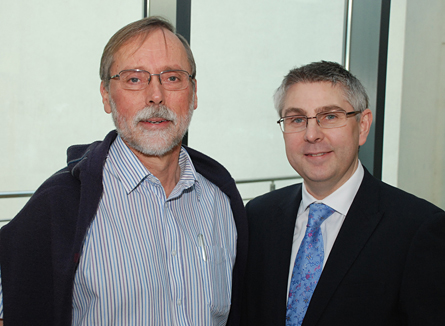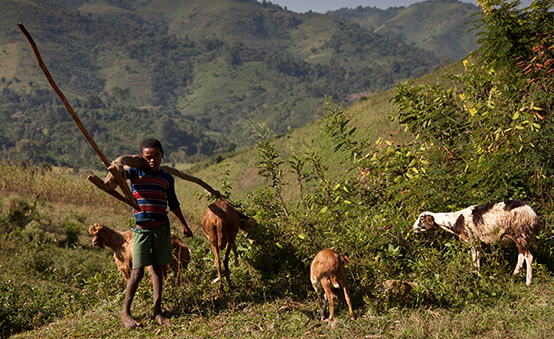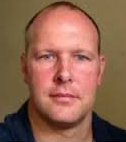EU praise for Uni’s 20-year Ethiopian Forest Management project

Wed, 10 Feb 2016 11:57:00 GMT
The Participatory Forest Management programme enables Ethiopian village communities to manage large areas of forest and use them sustainably
 ►Professor Adrian Wood (left) is pictured with Mr Chris Harrop, the UK Chair of the UN Global Compact and the Director of Marketing and Sustainability for Marshalls plc
►Professor Adrian Wood (left) is pictured with Mr Chris Harrop, the UK Chair of the UN Global Compact and the Director of Marketing and Sustainability for Marshalls plc
THE achievements of a University of Huddersfield professor and his team in protecting the environment and the livelihoods of Ethiopian forest dwellers have been praised by a top European Union official. And the work looks set to continue for many years, sharing in a new multi-million euro tranche of funding.
Since the mid-1990s, Professor Adrian Wood has been carrying out impact-based research in South West Ethiopia – dubbed “Green Ethiopia” because of its forests in which produce such as wild coffee and honey be can be harvested. He is a pioneer of an approach known as Participatory Forest Management (PFM), which enables village communities to take over and manage large areas of forest and use them sustainably.
For the past six years, Professor Wood and University of Huddersfield’s Centre for Sustainable and Resilient Communities (CSRC) – which he directs – have been managing the Wild Coffee Conservation Project, backed by the EU and the UK Government-funded Darwin Initiative. Using the PFM approach, it has enabled over 55 village communities to manage large areas of forest in a region where the wild Arabica coffee plant evolved and one of the few places where it still grows wild.
The project is reaching the conclusion of its current phase and at an event in Addis Ababa its goals and achievements were relayed to a large audience that included Ethiopian government officials and representatives of the EU and other donors.
 One of the speakers was Mr Sandy Wade, who is Charge d’Affaires for the EU Delegation to Ethiopia. He praised the work of the University of Huddersfield and its partners in the Wild Coffee Conservation PFM Project, which had shown “very impressive results”.
One of the speakers was Mr Sandy Wade, who is Charge d’Affaires for the EU Delegation to Ethiopia. He praised the work of the University of Huddersfield and its partners in the Wild Coffee Conservation PFM Project, which had shown “very impressive results”.
Achievements included improvements in forest governance, the development of forest-based enterprises to boost the livelihood of communities; plus the conservation, using PFM, of 60,200 hectares of natural forest with wild coffee and 16,200 hectares of managed coffee forest.
Mr Wade said that the EU was delighted that independent research had shown how the PFM approach had led to positive results and he announced that a further 15 million euros had been earmarked for a new project which will take an eco-regional approach in this part of Ethiopia.
Non-governmental organisations (NGOs) and research institutions will be invited to form consortia that would bid to manage the project. Mr Wade said he hoped that the University of Huddersfield would contribute to the work in in South West Ethiopia because of the “experience and expertise” that it had demonstrated.
 Professor Wood is delighted at the recognition of this work – which has been backed by funding totalling 7.5 million euros from by the EU and other partners over the last 20 years – and also glad to see that it looks set to continue.
Professor Wood is delighted at the recognition of this work – which has been backed by funding totalling 7.5 million euros from by the EU and other partners over the last 20 years – and also glad to see that it looks set to continue.
“We have been working on a direct grant from the EU, but in the future we will be part of a consortium led by a major international organisation, and we will have specific areas of responsibility building on our research expertise,” he said.
It is likely that the 15 million euros announced by Mr Wade will provide funding for a five-year project and that this will be succeeded by new phases, meaning that the University of Huddersfield could retain a key role in South West Ethiopian forest conservation and management for a further 15 years.
 Professor Wood, however, intends to concentrate on research and writing rather than the project management role he has filled for more than two decades. The University of Huddersfield’s CSRC has appointed Matt Snell (pictured left) – who has 20 years’ experience in the field – as its new Research Projects Manager.
Professor Wood, however, intends to concentrate on research and writing rather than the project management role he has filled for more than two decades. The University of Huddersfield’s CSRC has appointed Matt Snell (pictured left) – who has 20 years’ experience in the field – as its new Research Projects Manager.







